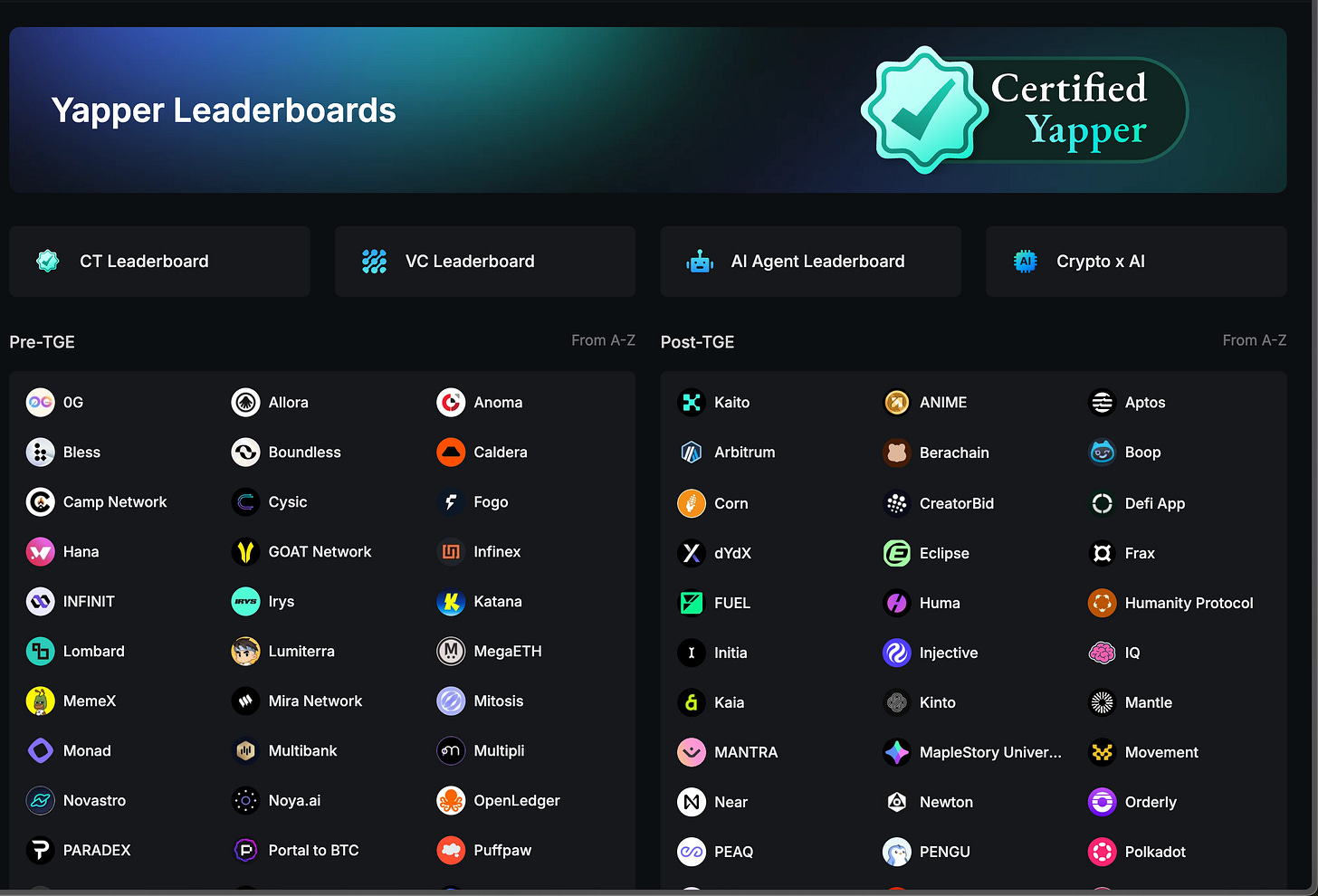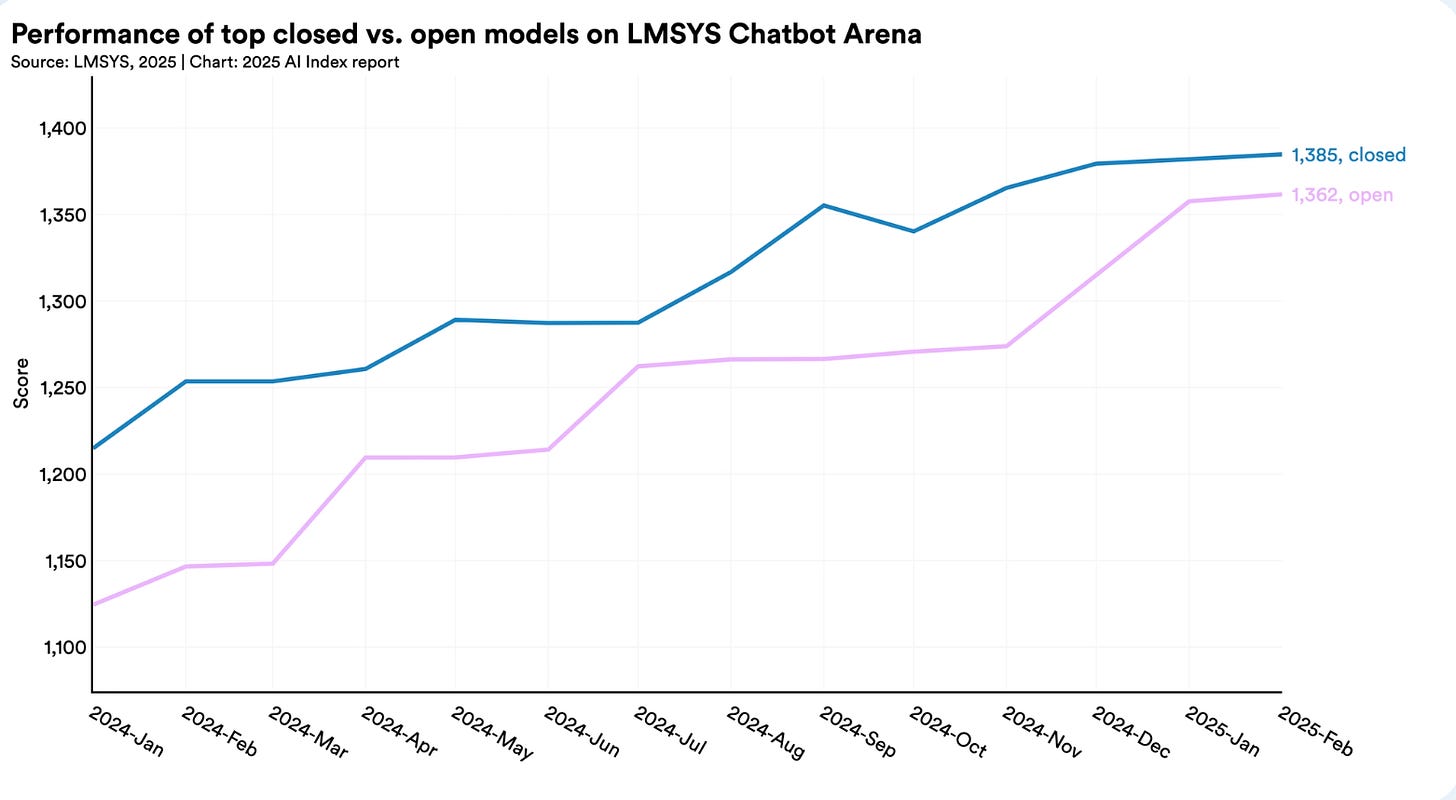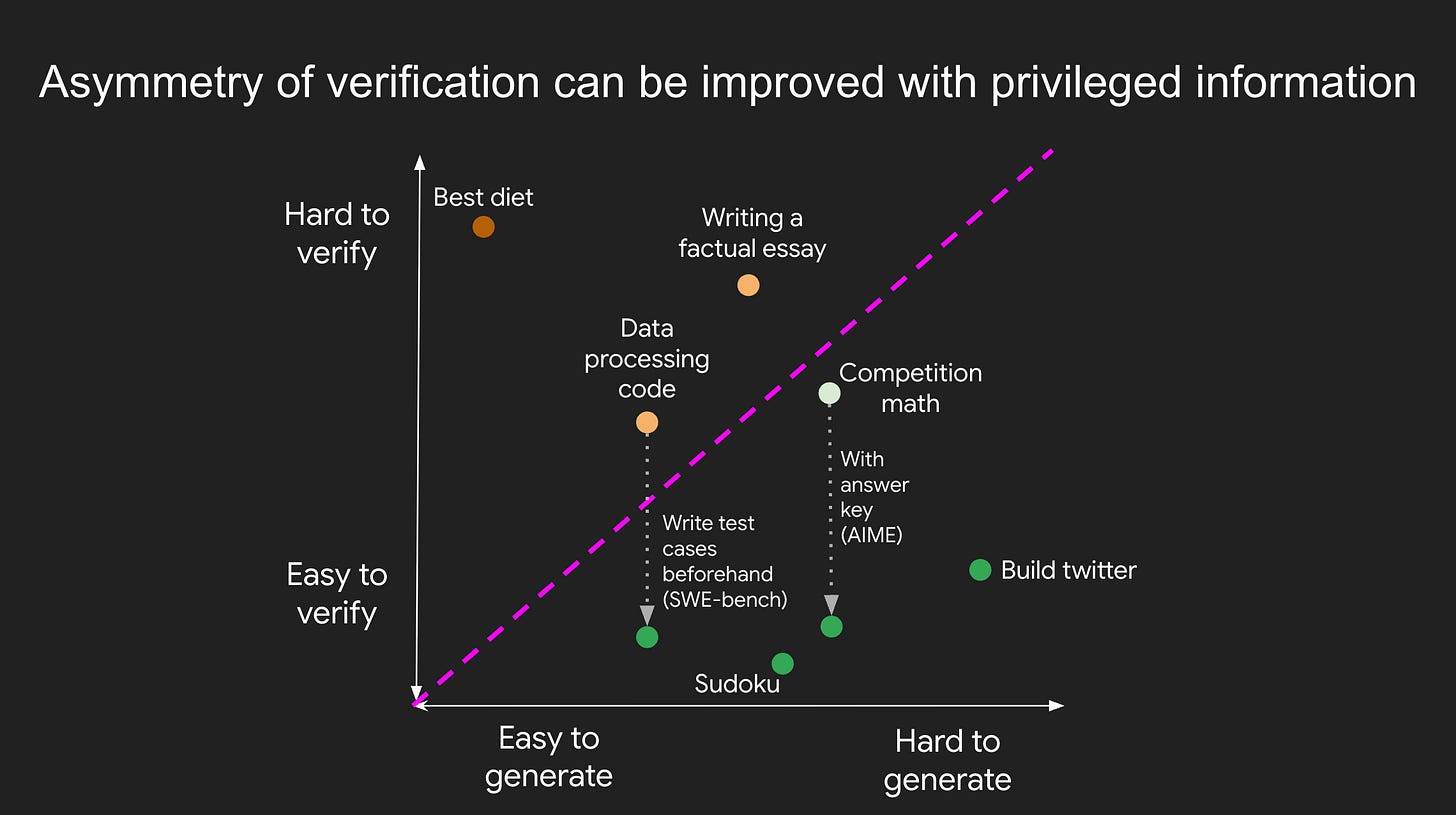“Words, displaced and mutilated words, words of others, were the poor pittance left him by the hours and the centuries.”
― Jorge Luis Borges, Labyrinths
When I started my first job at a venture capital firm fresh out of college, I was struck by how much words mattered.
Founders, investors, and operators tossed phrases like “future of work” or “open-source observability platforms” into conversations, and suddenly, those words were everywhere. Like magic. New terms could birth companies, attract millions, even create a unicorn. I found it thrilling, almost magical, that a single phrase could conjure a new marketplace of ideas. You throw words around, and stuff happens.
But what felt new was the speed and violence with which language now manifests markets. I’d sit in meetings as a single phrase “AI-native vertical SaaS,” “verifiable compute infrastructure,” “narrative-market fit” jumped from one tweet thread to demo days to term sheets to LinkedIn profiles, mutating as it spread. Words weren’t just signals, metaphors, or memes; they were molecular switches, flipping capital flows and opening regulatory loopholes, sometimes overnight, sometimes by accident.
We’re used to mocking buzzwords as the annoying background radiation of tech. But today, something stranger is happening: language is not just the soft tissue on top of reality, it is the scaffolding. New words create new investment categories before the underlying technology exists, force regulatory ambiguity into clarity (see: “AI Safety”), and manufacture new forms of labor and reputation that didn’t exist the day before.
The market itself seems to be evolving defenses, almost like an immune system. Each new linguistic mutation is rapidly metabolized, arbitraged, mimicked, or rejected. The cycle has compressed from years to days. Some words become so potent they act like zero-day exploits. If you get there first, you capture the alpha; but if you’re a week late, you’re ngmi (not-gonna-make it).

Markets now trade not just on financial projections but on projected narrative virality. In a landscape where narrative contagion can derail attention in days, the real challenge for founders and investors is figuring out how to build something that can’t be easily erased or hijacked by the next linguistic mutation.
Words as legitimacy
A well-chosen phrase could make a founder sound like they belonged, or a VC sound like they’re well-aware of the reality of operations. Founders want to convey the right message to capital markets, and the capital markets' response patterns match how words translate into later funding rounds, kickstarting a recursive process even though the attribution of success is unclear.
Pitching “the Cursor for [insert vertical]” or “stablecoin for [insert emerging market]” was never just a way to telegraph ambition or stake a claim on opportunity. The phrase itself carried less weight as a business model than as a shibboleth, an incantation proving you could speak in the evolving dialect of the market’s priesthood. Sometimes founders wielded these frames out of genuine conviction; sometimes just to see if the room was listening for the right signals.
Legitimacy, built on words, can be fragile. Words sour quickly after too many overhyped projects crash. The room would grow skeptical of the idea, not because of its substance, but simply because the words felt worn out.
When customers are asking AI companies how their product performs against XYZ ‘benchmark,’ what are they really asking? A genuine demand for the solution or a soft test of the team’s legitimacy, a badge of being attuned to currents? Throwing words around mirrors how tribes signal belonging and hierarchy, where fluency in shared lexicon becomes a marker of status and adaptation.
When I was building my last company, I was surprised by how many conversations drifted away from product details and into a kind of ideological vetting. People arrived seeking signals, not solutions, checking whether we spoke the right dialect, shared the anxieties of the moment, or could perform the local rituals of “decentralization” and “modularity.”
On the frontier, the lack of fixed reference points or mature products means language itself must carry the burden of reality-making. To wield the right phrase is to lay claim to a future, or at least to the next funding round.
But legitimacy cuts both ways. The same words that can grant access to funding rounds can also become creative constraints, boxing teams into narrow definitions of what they're building. This tension reveals another dimension of how language operates in these spaces as a source of genuine catalysts.
Words as catalysts
The most rewarding part about being on the frontier is that you're expected to mix and match new concepts, and something interesting could come out of it. The cost of turning down an idea is high, since the upside of potentially catching lightning-in-the-bottle that could invent the next paradigmatic architecture design is almost infinite.
Every word is potentially a recombinant gene. The market's collective memory absorbs these trials, refining which terms achieve viral spread and which recede as evolutionary dead-ends. This churn serves as a primitive engine of selection, an ecology of concepts where only the fittest, or the most seductive, persist.
Open-weight models is a perfect example. Teams often get caught up on benchmarks, but static evaluations fail to capture the complexity of real-world dynamics, like overfitting to tests without generalizing to deployment variability. Good on paper, but not in practice.
The gap between what gets measured and what actually matters is where ambition can quietly rot. The best founders I’ve met speak in the gritty language of a real user’s pain, test a plain hypothesis, and let the imperfect results reshape the narrative. The opposite approach is seductive in the short-term. In that gap between metric and lived reality, whole companies can disappear before anyone admits the story went wrong.
Words as leverage: verifiability is the limit
Nowhere do the race for attention escalate faster than in the startup world, where words itself becomes a lever of power. How can founders make words work for them? It isn’t just who can conjure the most seductive phrase, but who can set the axis of verifiability.
To understand why some words carry so much weight, we have to get concrete about "verifiability." AI researcher Jason Wei refers to this as the "asymmetry of verification": some claims are easier to verify than to generate. If I hand someone a finished crossword puzzle, they can check its correctness in seconds; filling it out could take hours. Wei identifies five traits that make a claim highly verifiable: clear objective truth, quick and scalable checking, low noise in evaluation, and a gradient of possible success.
This is why, in the age of LLMs and relentless benchmarking, 'you are what you measure' isn't just an MBA platitude. Every viral success is less about pure invention than about controlling what gets measured, and how quickly. AI’s benchmark culture is one such microcosm. GPT-4 excels because its skills are easy to verify on SATs and bar exams. The truth is clear, rewards are continuous, and verification is scalable.
But ambiguity, taste, meaning, value, these remain hard to attain within the hierarchy of verifiability. “Intelligence” races ahead wherever the rewards are liquid and the outcome is easy to check, but it lags at the edges: in murky context, slow feedback, or spaces where the answer is more felt than measured.
While it’s tempting to believe a model or benchmark can capture everything, reality is often messier. “Not getting the result we want? Let’s train our own model!” The most interesting edge often lives precisely in the domain where a product can only be validated by listening, observing, sitting beside the customer and feeling the texture of the real problem. Sometimes, the human ear or the founder’s attentive presence delivers the only verification that matters. These are the zones models can’t reach. But they are often the source of durable insight and differentiation. The space of unmeasurable, wild reality doesn’t just resist modeling; it protects a kind of creative advantage for those willing to see what the metrics still can’t touch.
Founders are trying to build something real in a world that rewards the appearance of progress over progress itself. Similarly, VCs are making bets with imperfect information in a game where the cost of missing the next platform shift can be existential. We are all, in our way, trying to speak a language that might conjure the future we actually want to live in. The tragedy is not that we use words as instruments of power, but that we've forgotten how to use them as instruments of truth. We've become so fluent in the grammar of legitimacy that we've lost the vocabulary for what we're actually trying to accomplish.
Language is how we make sense of uncertainty, how we convince ourselves and others that we're moving toward something meaningful. An honest position is to hold our words lightly - to use them as tools without mistaking them for the work itself. Perhaps the goal isn’t to master the words, but to succumb to their lifecycle, or to learn, at last, how to listen for the truths that language cannot name.
I recently gave a talk with Ben & David from the Acquired Podcast at Vercel Ship, where I talked on a high level about the dynamics of how ideologies shape frontier markets.





